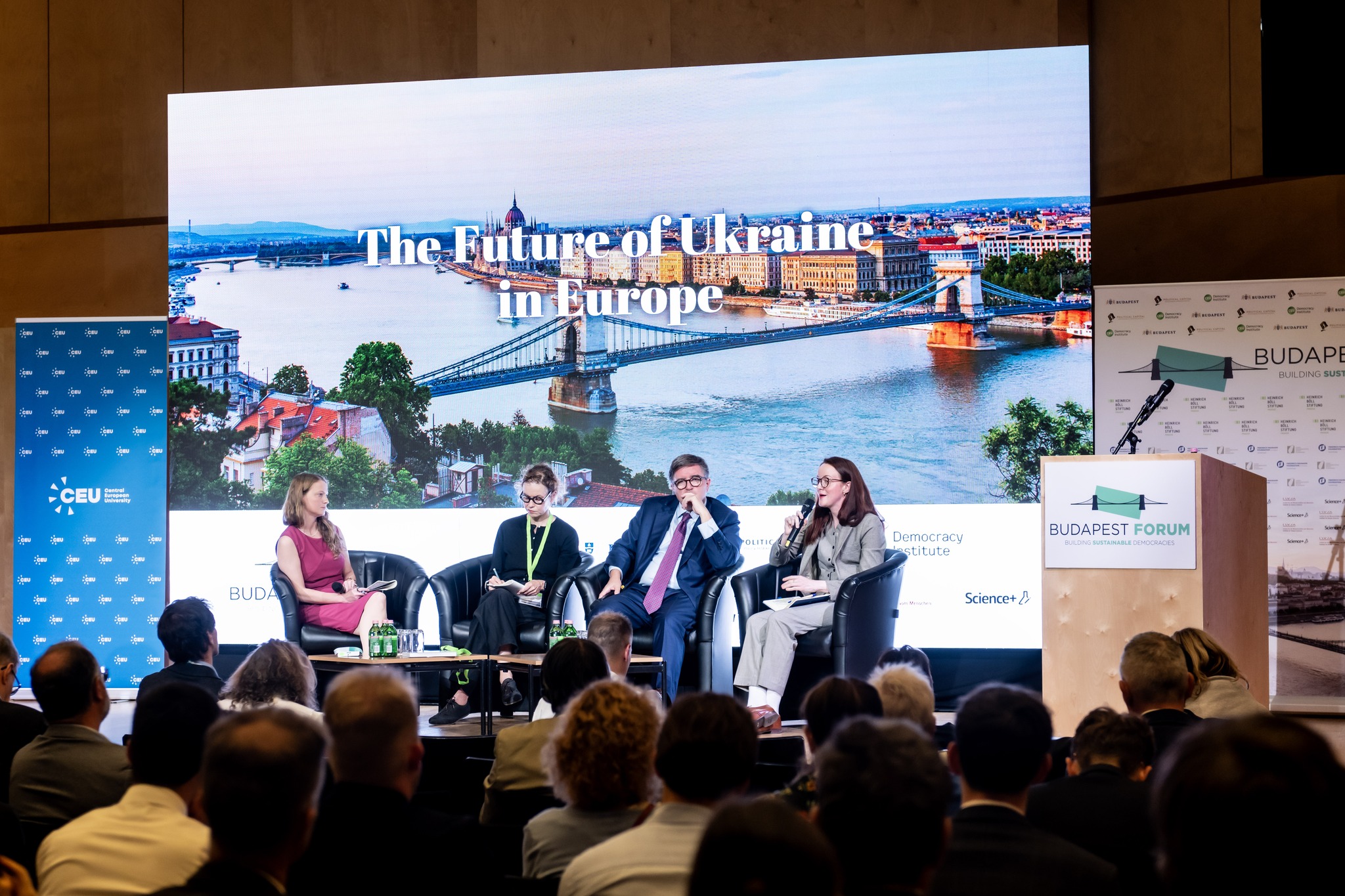The future of Ukraine in Europe
2025-09-24
Panel summary: ‘The future of Ukraine in Europe’ at Budapest Forum 2025.
Participants
Ambassador James O’Brien – Former Head of the Office of Sanctions Coordination at the U.S. Department of State
Dorka Takácsy – Researcher, Centre for Euro-Atlantic Integration and Democracy
Renáta Uitz – Senior Research Fellow, CEU Democracy Institute / Professor of Law and Government, Royal Holloway, University of London
Moderator: Zsuzsanna Végh – Program Officer, German Marshall Fund

Main takeaways
- Ukraine aid delays (Trump, Orbán) weakened Kyiv’s counteroffensive, but Europe compensated through sanctions, defense spending, and energy diversification.
- Russia escalated with drone and cross-border strikes, while Ukraine hit pipelines and energy targets with strategic effect.
- Ukraine’s actions also impacted Hungary and Belarus via energy disruptions.
- Ukraine showed solidarity with Poland, underlining its potential integration into European security structures.
- EU must supply high-end capabilities (satellite intel, air defense, advanced weapons) beyond Ukraine’s domestic capacity.
- Financing options include using approx. USD 300 billion immobilized Russian assets to fund Ukraine for 5–8 years.
- EU accession path is complicated by veto players, budgetary negotiations, and rule-of-law concerns.
- Ukrainian civil society is vibrant and pro-integration, but it cannot replace state institutions in governance or reconstruction.
- The U.S. has cut practical support (USAID, State Dept capacity), leaving Europe as the main driver of Ukraine’s democratic path and EU integration.
This panel discussion was co-organized with the ERSTE - IWM Europe's Futures fellowship program.
Explore all the panel discussions from Budapest Forum 2025 here.
Copyright 2026. Political Capital Policy Research and Consulting Institute, all rights reserved.

